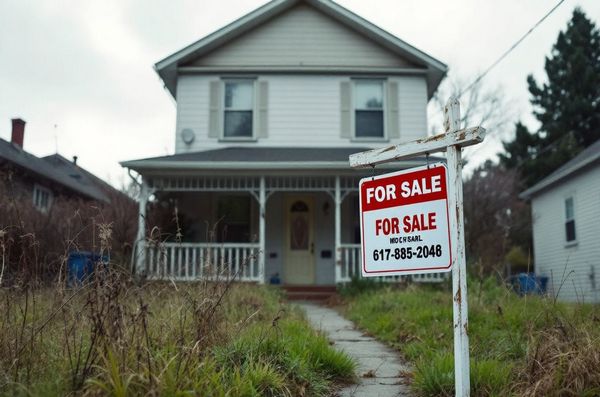Refinancing can seem like a smart move. Many homeowners look to save money or lower their monthly payments by refinancing. But things don’t always go as planned. A wrong decision or refinancing mistakes can lead to higher debt, stress, and even losing your home.
Did you know that borrowing too much against your home’s value can cause financial trouble? It has, in some cases, led to large-scale economic crises. In this post, you’ll learn what causes refinancing mistakes and how they impact both families and the economy.
You’ll also discover tips to avoid costly errors.
Small missteps can have big consequences—keep reading!
The Role of Refinancing in Personal and National Financial Health
Refinancing can help people manage their loans and save money. It also affects the overall economy by influencing debt, spending, and growth.
Importance of refinancing in managing personal debt
Refinancing helps lower monthly payments. It allows borrowers to replace old loans with new ones at better interest rates. This can save households tens of thousands of dollars over time if done properly during declining interest periods.
Borrowers who carry too much debt may lose refinancing options. Lenders often reject applications if the debt-to-income ratio is high. Carefully managing personal debt and timing refinancing decisions are key to avoiding financial stress and missed savings opportunities.
Impact on national economic indicators
Refinancing impacts the economy in big ways. During housing booms, many homeowners refinance to pull equity from their homes. This increases spending but also raises debt levels. Too much refinancing can lead to over-leveraging, causing financial instability.
High refinancing activity often happens before recessions. Rising home prices and falling mortgage rates encourage this trend. If too many loans fail due to poor planning or external factors, it can harm banks and create a credit crunch.
This cycle may worsen economic downturns and hurt national growth.
Common Triggers of Refinancing Mistakes
Refinancing can go wrong if you make decisions at the wrong time or with poor planning. Small mistakes can quickly lead to big financial problems for borrowers.
High interest rates and their timing
High interest rates can ruin refinancing plans. Borrowers may face higher loan payments, making it hard to save. Timing matters too—waiting too long to refinance can mean missing out on savings.
Many borrowers do not act when their trigger rate is reached, losing tens of thousands in potential benefits.
During recessionary periods, high rates make refinancing even riskier. Homeowners who extract too much equity while rates climb may struggle later with financial instability. Over-leveraging creates a dangerous cycle that worsens crises for both families and the economy as a whole.
Poor credit scores leading to unfavorable refinancing terms
Lenders may refuse to approve refinancing if your credit score is too low. Borrowers with poor credit often face higher interest rates and fees. These terms can make loans expensive and hard to manage.
Too much debt increases the risk of disqualification by lenders. A bad debt-to-income ratio might signal you cannot handle a new loan. This could lead to missed savings or financial strain over time.
External economic factors disrupting refinancing benefits
Rising home prices and falling mortgage rates often push homeowners to refinance. But sudden economic shifts can ruin these benefits. A recession or credit crunch may lead banks to tighten lending rules.
Borrowers with high debt might fail to qualify for new loans.
Housing booms also create risks. During these times, many homeowners over-leverage by pulling too much equity from their homes. When the economy slows, they face financial trouble—sometimes defaulting on their loans or going bankrupt.
These patterns have appeared before most recessions, signaling a deeper problem tied to refinancing trends.
Case Studies: Refinancing Mistakes and Their Consequences
Some borrowers took on new loans, thinking they’d save money, but ended up paying more due to hidden costs. Others refinanced during tough economic times and faced foreclosure when home values dropped.
Examples of significant financial losses due to refinancing errors
Borrowers who missed refinancing during low interest rate periods lost thousands in savings. Households failing to act at their “trigger rate” gave up big opportunities for financial relief.
For instance, with rates dropping by even 1 percent on a $300,000 mortgage, potential savings could exceed $50,000 over time.
Extracting too much home equity also caused severe losses. During housing booms, homeowners borrowed excessively through refinancing. Many faced foreclosures when home values dropped or payments became unaffordable.
Over-leveraging led to bankruptcy and long-term debt traps for countless families.
Analysis of refinancing during economic downturns
Refinancing during a recession can backfire. Falling mortgage rates may seem tempting, but external factors like job loss or reduced income make it risky. Many households miss chances to save by delaying refinancing even when interest rates drop below their trigger rate.
This delay can cost them tens of thousands in potential savings.
Over-leveraging is another issue. Some homeowners extract too much equity without planning properly. During housing booms, this behavior increases financial instability and risks of foreclosure or default if markets crash later.
Refinancing errors during these times often worsen personal debt and harm the broader economy.
Psychological and Behavioral Factors in Refinancing

People often let emotions guide their choices when refinancing. Poor money habits or lack of planning can lead to costly mistakes.
Influence of cognitive biases on refinancing decisions
Cognitive biases can make borrowers delay refinancing even with lower interest rates. Many miss savings of tens of thousands because they ignore their trigger rate. Overconfidence leads some to assume rates will drop further, causing hesitation.
Borrowers often extract too much home equity due to “optimism bias.” They think property values will always rise, but over-leveraging adds risk. Past mistakes help borrowers improve slightly on future refinances, yet biases still cloud judgment for many.
The role of financial literacy in successful refinancing
Good financial literacy can prevent costly refinancing mistakes. Borrowers who understand terms like “interest rates” and “loan-to-value ratios” make better choices. Households that miss chances to refinance when rates drop lose tens of thousands in savings.
Poor planning, such as pulling too much home equity, risks defaults or foreclosures.
Managing debt is key in successful refinancing. A high debt-to-income ratio may disqualify a borrower from getting better loan terms. Learning from past errors helps too—research shows borrowers make smaller mistakes the second time they refinance their mortgage.
Read This Also: The Rise of Digital-Only Banks: Are Traditional Banks Obsolete?
The Broader Economic Impact of Refinancing Mistakes
Refinancing mistakes can shake up the entire economy. They can make loans harder to get and hurt industries like housing.
How suboptimal refinancing can exacerbate financial crises
Poor refinancing choices can lead to serious problems. Homeowners who borrow too much from their home equity may struggle to pay loans during tough times. This over-leveraging increases financial instability in the housing market.
During a housing boom, many homeowners rush to refinance. Some extract large amounts of equity without proper planning, leaving them vulnerable if home prices drop.
Missed opportunities also add pressure. Borrowers who wait too long after hitting their trigger rate lose possible savings on lower interest rates. Lenders then tighten rules when debt levels get too high, disqualifying some for refinancing entirely.
These mistakes ripple through the economy, worsening crises and creating risks for banks and investors tied to mortgage-backed securities.
Effects on the housing market and mortgage-backed securities
Rising home prices and falling mortgage rates often push homeowners to refinance. Many extract too much equity without proper planning, leading to over-leveraging. This creates financial instability in the housing market.
Refinancing mistakes can hurt mortgage-backed securities too. When borrowers default on loans or miss payments, investors holding these securities face losses. Lenders may restrict their lending, causing a credit crunch that worsens the problem.
Strategies to Avoid Common Refinancing Pitfalls
Smart planning can help you avoid big refinancing mistakes. Learn how to spot risks and make better choices for your financial future.
Importance of financial advice and risk assessment
Good financial advice can save homeowners from huge mistakes. Borrowers often struggle with timing their refinancing or miss savings when interest rates drop. Some lose tens of thousands by not acting quickly after reaching their trigger rate.
Risk assessment helps avoid over-leveraging and debt issues that can lead to defaults or bankruptcy. Many lenders reject refinancing applications if the homeowner’s debt-to-income ratio is too high.
Proper planning ensures borrowers don’t extract too much home equity, which could bring financial stress later.
Tools and practices for better decision-making in refinancing
Use a mortgage calculator to estimate costs and savings. Tools like this help compare interest rates, loan terms, and monthly payments. Check your current debt-to-income ratio—it must be low enough for lenders to approve refinancing.
A high ratio might disqualify you or lead to unfavorable terms.
Talk to financial advisors before signing any deals. They can point out risks like over-leveraging or borrowing too much equity from your home. Stay updated on economic trends and market rates; missing lower interest rate periods may cost tens of thousands in savings.
Always read the fine print carefully to avoid hidden fees that reduce long-term benefits.
Conclusion
Refinancing can be tricky. Poor timing or bad decisions might lead to more debt instead of savings. High interest rates and risky choices can hurt homeowners and even the economy. Plan wisely, seek advice, and think ahead before refinancing.
A smart move today prevents trouble tomorrow!
Frequently Asked Questions (FAQs)
1. What happens when refinancing goes wrong?
Refinancing can backfire if you’re not careful. It might lead to higher debt, unexpected fees, or even losing your home if payments become unmanageable.
2. Can refinancing really trigger a financial crisis?
Yes, it can—especially on a larger scale. If too many people refinance without understanding the risks, it could create widespread financial instability (think housing market crashes).
3. Why do people face problems with refinancing?
People often rush into deals without reading the fine print or misjudge their ability to repay loans later. Sometimes interest rates change or hidden costs pile up unexpectedly.
4. How can I avoid mistakes when refinancing?
Take your time! Research thoroughly, compare offers, and make sure you understand all terms before signing anything—small details matter more than you’d think!

